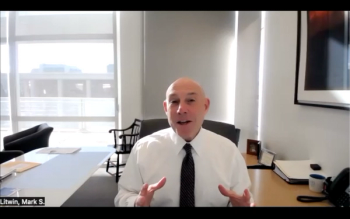
Recruitment challenges stem from multiple factors
"Most urology groups remain relatively small and a new partner is someone who had better be able to get along with most of your group. If you think dating is hard, finding a partner who is a good “fit” is even harder," writes Henry Rosevear, MD.
Dr. Rosevear is a urologist in community practice in Colorado Springs, CO. Urology Times blogs present opinions, advice, and news from urologists and other urology professionals. Opinions expressed by bloggers are their own, and do not necessarily reflect the views of Urology Times or its parent company, MJH Life Sciences.
I have a fantasy that everyone likes me. It's not a true statement, I realize, but it does make me sleep better at night. As a result, I thought that recruiting a new partner to join my group would be easy. Unfortunately, that is not true either.
I live and practice in Colorado Springs, CO, which ranked third in the nation in the 2019
Seems like a good job in a great city. But recruiting was still hard work.
The challenge of recruiting new physicians isn’t specific to urology. The first problem we have is that the supply just isn’t there. By 2030, the Association of American Medical Colleges estimates there will be an overall
But the situation is worse than that. Not only are we all competing for an ever-shrinking pool of doctors, the timeline to recruit a physician keeps expanding. Many physicians wrongly assume that if they start looking 12 to 18 months before they want a new doctor to start, they’re planning well ahead. Unfortunately, and my own experience supports this, most residents expect to have a signed contract well before their chief year begins.
Also by Dr. Rosevear -
When you do the math, that means if a group is looking to hire a newly minted, fresh-out-of-residency urologist, they need to plan 24 to 30 months ahead. At that time frame, do you even know yet if you need a new doctor for your practice? At what age do we now have to start asking the senior partners about their retirement plans and then make sure they stick with those plans? The burdens of planning that far ahead can be significant.
Geographic variations in play
So, let’s assume a group makes the decision 3 years out that they definitely need a new doctor. Can they actually find someone? Even with that timeline, it’s still not guaranteed. We all know that urologists are in short supply, but when you look at local-regional variations in doctors, the problem becomes even worse. An interesting article looking specifically at the VA system but with lessons for everyone shows that urologists tend to concentrate in larger cities, leaving a large number of patients completely unserved (
Being one of those physicians who lives in a metropolitan area, I understand the trend. I enjoy the conveniences of a city both personally and professionally. Personally, my wife won’t move to a rural area, so that’s that. Professionally, there are advantages to working in a city where I have access to well-trained physician in every subspecialty. While I also run an outreach clinic in a wonderful small town full of great people staffed by intelligent and caring professionals, I doubt that town will ever find a urologist will to work there full time, leaving the town underserved.
Being on call every night with no colleagues for miles is not something I am interested in signing up for. Unfortunately, this creates significant problems for rural centers when it comes to recruitment, as
What is Adam Smith’s invisible hand? Compensation. In a perfect market-driven model, as the demand for urologists increases and their volume decrease, compensation would simply increase. It’s Economics 101. Unfortunately, federal rules on fair market-driven compensation prevent this from happening. But those same rules also warp graduating residents’ views on what “normal” compensation is.
Next:
Lastly, and most challenging, is finding the right person. Most urology groups remain relatively small and a new partner is someone who had better be able to get along with most of your group. If you think dating is hard, finding a partner who is a good “fit” is even harder. Now I realize that most groups have a period when a new hire can be let go for little reason if the group feel it is not working out, but given the challenges of recruiting a new doctor, that is not an easy decision. But it is clearly one that is made both by groups and by new hires.
Read:
A
My group was lucky. We had known for a few years we needed someone and had started to look. We found a candidate who was leaving the military and moving into private practice and had practiced in our geographic area for many years. We knew and liked him and were able to fend off the local hospital systems because he was smart enough to realize how terrible that systems was. Further, he knew the local community well and understood what a reasonable offer entailed.
We ended up with a great partner when we needed one at a price that was fair to everyone. I’m not sure if we’ll be able to pull off that trick the next time around but that is a story for another day.
Share your comments on this blog post by sending an email to
Newsletter
Stay current with the latest urology news and practice-changing insights — sign up now for the essential updates every urologist needs.






